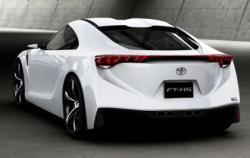Search the Community
Showing results for tags 'emotion'.
-
On a recent episode of a podcast, Singapore came up once again (it’s a British podcast, and probably my favourite podcast), and the associated statistic was… notable. Here it is: According to a Gallup poll in 2012, Singapore was ranked the least emotional country in the world. First sentence of the associated Gallup news article: “Singaporeans are the least likely in the world to report experiencing emotions of any kind on a daily basis.” And, this… honestly feels quite true. It’s at least not surprising or outlandish. It’s worth noting the methodology to the study: Interviews with individuals who answer yes/no to questions that ask about either positive or negative emotions. In subsequent studies by Gallup, they’ve instead recategorised results into a Positive Experience Index and Negative Experience Index – it is probably a more relevant reflection of societal happiness/unhappiness. (You can find the report here.) But back to the original survey, and the original point: Are Singaporeans really emotionless, and why? Some analysts chalk this up to a culture of high productivity and high discipline – which explains us being one of the highest GDP per capita countries in the world (meaning richest). And there’s a good amount of truth to that. With a society built around productivity, even from young with a highly competitive and results-driven education system that arguably favours a stoic approach to life, Singaporeans can be characterised as robots (highly effective, highly efficient ones). And while I am clearly no anthropologist, I think most Singaporeans will recognise and probably agree with this assessment. It might be a tad too harsh to call us emotionally suppressed, and I don’t think emotionality is naturally counter-productive to work efficiency, but I do think that many Singaporeans perceive overt emotionality as being a less ideal state of efficiency. (It’s probably also somewhat indicative that the other countries ranked after Singapore - Georgia, Lithuania, Russia, Ukraine, Belarus and Kazakhstan - are all ex-Soviet states that may be stereotypically characterised as unemotional and workman-like.) However, economic factors cannot be the only explanation. In fact, Singapore is something of an outlier in the data sets, where more wealthy countries tend to rank higher on emotionality. I also wonder if a part of it is our ability to recognise and articulate emotions – and whether there are more cultural explanations. I come back to a phrase that I hear often (and am guilty of using often, too): “Ok lor.” While it might be a fairly generic uttering, I do think there’s something implicitly Singaporean about that attitude – instead of recognising and reconciling our present emotions, we instead consciously or subconsciously choose not to acknowledge it, or any emotion at all. And there’s cultural explanations for this: Think about our upbringing, and especially with the older generations where being outwardly emotional is not particularly encouraged. Instead of feeling the swings of happiness and sadness, instead we are encouraged to adopt a more neutral emotional state. And maybe as a result, we’re also less equipped to recognise varying emotions day-to-day, and to articulate them. Hence, ok lor. Like that lor. Sui bian lor. This grey blasé approach to life is maybe our armour, but I wonder if it’s then robbing us of richer, more colourful experiences. It’s arguably in no way a ‘bad’ societal condition, because it has to be evaluated across a spectrum, but that shouldn’t mean that we take our existing emotional state (or unemotional state) as a foregone conclusion. Is this the absolute cost of efficiency and productivity? If so, is this a cost worth paying? But perhaps more importantly, why should this be the cost to pay? And culturally, positive experiences appear to radiate out of Latin America, as well as some of our neighbouring countries (Malaysia and Thailand, especially). Perhaps we could learn some cultural lessons – just as a way of enriching our daily emotional lives and all the ups and downs that we will experience. There is value, I believe, in being more emotionally adept. Singapore doesn’t seem to appear in subsequent reports, though it’s also worth highlighting that Gallup has changed their reporting approach. We’re neither high nor low on negative experiences, but neither high nor low on positive experiences either. We’re likely decidedly mid, as the kids would say. “What Is the World's Emotional Temperature?” is how Gallup headlines its research, a grand question with interesting answers. And while clearly Singapore’s emotional temperature is decidedly tepid, it is perhaps worthwhile for us to individually ponder our personal emotional thermostat. And maybe, just maybe, we can figure out that we aren’t all just dead inside. ~ Desmond Photos from Unsplash
-
A short film made in Penang Enjoy and do give me your honest opinion. Happy Lunar New Year ! https://youtu.be/afV44Lz8QO8 Why so many Penang filming ? Because I always travel to Penang.
-
Fisker officially unveils its new EMotion all-electric vehicle with 400-mile range https://electrek.co/2018/01/09/fisker-new-emotion-all-electric-vehicle-400-mile-range/ After months of teasing, so much so that we had actually seen pretty much the entire vehicle and we have been aware of its main specs, Fisker officially launched its new EMotion all-electric vehicle at CES in Las Vegas last night. Henrik Fisker, chairman and CEO of Fisker Inc., commented on the launch: “We are truly entering a new era in the way the world thinks about vehicles, the way EVs are charged and the way personal consumer electronics are powered – with Fisker Inc. now clearly at the forefront of that revolution through our worldwide launches at CES. With the EMotion, we’re introducing edgy, dramatic and emotionally-charged design/proportions – complemented with technological innovation that moves us into the future. That design balance is what has made the Fisker brand emotionally connect with our consumers.” As previously reported, Fisker claims a range of ‘over 400 miles of range’, ‘9-minute charging’, and a $130,000 price tag. We already had a pretty good look at the exterior of the Emotion with previous teasers, but the official launch gives our best look yet at the interior of the vehicle: Fisker listed some interior comfort and convenience features in the EMotion: Interior: Defining the Future of Luxury Ultra-Soft Premium Leather Interior Color: Caramel and Midnight Black (Fisker was the first automotive brand to offer a vegan interior as an option – and will do so again with the EMotion) Three Driver-Oriented Screens, With Center Curved Screen Inductive Charging Ports and Special Holders For Four Smartphones (Partially visible) Carbon Fiber Center Console with Additional Storage Space for Tablets and Accessories Four Individual, Electric Adjustable First-Class Seats Optional 27″ Curved Rear Screen For “Chauffeur Edition” Five Seats, Rear Bench Option Individual Four Zone Electric Adjustable Tinted Roof: Electrochromic Glass in Collaboration with Lipik Fisker previously said that his new startup plans to bring the vehicle to market in low volume in 2019, but he didn’t elaborate on the plans at the launch this week. Instead, he said that the EMotion “will be produced in the United States at a location to be announced during the second half of 2018.” With the official unveiling of the vehicle, Fisker also showcased its new solid-state battery, which he claimed achieved a ‘breakthrough’ earlier this year to enable electric cars with ‘500 miles range and 1 min charging’. He commented: “We’ve also made the seemingly impossible, possible with our scientists spearheading the breakthrough in Flexible Solid-State battery technology – which is the next generation in charging everything from your personal cell phone to enabling mass adoption of electric vehicles due to unprecedented ranges and lighting fast charge times. We’re incredibly excited to showcase working solid-state batteries and the vehicle, in-person, on such a massive global stage. Fisker Inc. is about breaking barriers, leading in automotive technologies and ultimately creating the most desirable, functional futuristic electric vehicles.” When announcing the new battery earlier this year, Fisker said that they anticipated automotive production grade to be ready around 2023, but they have now aggressively updated this timeline to 2020 and they even claim that personal electronics/cell phone battery production could arrive “earlier – and possibly in 2018.”
- 3 replies
-
- fisker
- electric car
-
(and 4 more)
Tagged with:
-
[extract] We have all heard about the term
-
- discussions
- other news
- (and 11 more)
-
Hi does anyone know the difference betw TR Emotions and Work Emotions rims? I was asked by a tyre shop to purchase a 2nd hand TR Emotion rims. H/w I am not familiar with this brand and searching the internet yields varied results and also references to Work Emotion CR Kai rims. They even look similar. I am guessing the TR Emotion rims are replicas of the orig Work Emotion rims? Tks.
- 2 replies
-
- Difference
- between
- (and 4 more)
-
This is only a concept hybrid sport car from Toyota...... Though many concepts dun make it as production car......juz fer u to drool only. Check out this webby: http://blog.wired.com/cars/2006/12/toyotas_fths_hy.html






